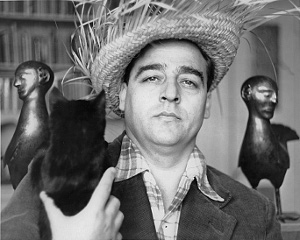A Quote by Neale Donald Walsch
God is speaking to all of us, all the time. The question is not, to whom does God talk? The question is, who listens?
Related Quotes
But in the end, science does not provide the answers most of us require. Its story of our origins and of our end is, to say the least, unsatisfactory. To the question, "How did it all begin?", science answers, "Probably by an accident." To the question, "How will it all end?", science answers, "Probably by an accident." And to many people, the accidental life is not worth living. Moreover, the science-god has no answer to the question, "Why are we here?" and, to the question, "What moral instructions do you give us?", the science-god maintains silence.
There are two gods. The god our teachers teach us about, and the God who teaches us. The god about whom people usually talk, and the God who talks to us. The god we learn to fear, and the God who speaks to us of mercy. The god who is somewhere up on high, and the God who is here in our daily lives. The god who demands punishment, and the God who forgives us our trespasses. The god who threatens us with the torments of Hell, and the God who shows us the true path.
There are two gods. A god who casts us off because of our sins, and a God who calls to us with His love.
I think there is, not in the sense that I enjoy it, but that it's an important question. It's the question, "Does the presence of pain mean God doesn't care? Does God not love me anymore?" I think that's a very common connection we tend to make. I see that a lot in my own life and in the lives of others.
We try to evade the question of existence with property, prestige, power, possession, production, fun, and, ultimately, by trying to forget that we- that I- exist. No matter how much he thinks of God or goes to church, or how much he believes in religious ideas , if he, the whole man, is deaf to the question of existence, if he does not have an answer to it, he is marking time, and he lives and dies like one of the million things he produces. He thinks of God, instead of experiencing God.
He [God] made us free, and He respects that. It is two different spheres of causality. Interdependent, though. It is not two boxes looking at one another without any kind of direct connections. There are very direct connections. That's why the question of "how are we free if God is omnipotent?" is a real, constant question. Ultimately, God is all powerful, and yet we are free.
Well, here’s a scientific question: Has anybody ever seen hard evidence? What we get is theories from our earlier prophets. Now, people who think that God invented us think that the Earth can’t be more than 6,000 years old. So I guess it’s a question of belief. My belief system doesn’t support a creator as such, as we can call God, who created us in His/Her/Its image.


































